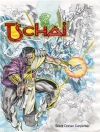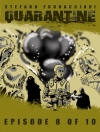Imagine a type of writing so hard to define its very name means a trial, effort or attempt. An ancient form with an eye on the future, a genre poised between tradition and experiment. The essay wants above all to wander, but also to arrive at symmetry and wholeness; it nurses competing urges to integrity and disarray, perfection and fragmentation, confession and invention.
How to write about essays and essayists while staying true to these contradictions? Essayism is a personal, critical and polemical book about the genre, its history and contemporary possibilities. It’s an example of what it describes: an essay that is curious and digressive, exacting yet evasive, a form that would instruct, seduce and mystify in equal measure. Among the essayists to whom he pays tribute – from Virginia Woolf to Georges Perec, Joan Didion to Sir Thomas Browne – Brian Dillon discovers a path back into his own life as a reader, and out of melancholia to a new sense of writing as adventure.
About the author
Brian Dillon was born in Dublin in 1969. His books include Suppose a Sentence , Essayism , The Great Explosion (shortlisted for the Ondaatje Prize), Objects in This Mirror: Essays , I Am Sitting in a Room , Sanctuary , Tormented Hope: Nine Hypochondriac Lives (shortlisted for the Wellcome Book Prize) and In the Dark Room , which won the Irish Book Award for non-fiction. His writing has appeared in the Guardian , New York Times , London Review of Books , Times Literary Supplement , Bookforum , frieze and Artforum . He is UK editor of Cabinet magazine, and teaches Creative Writing at Queen Mary, University of London.












